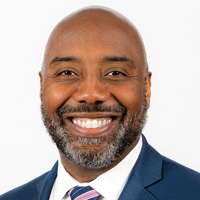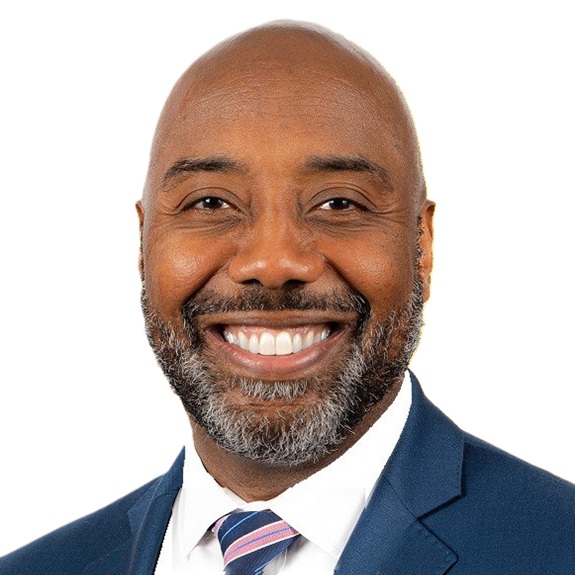Trusts for Child Influencers: What Families Need to Know
As video blogging, or vlogging, gains popularity (and profitability), new laws are shaping financial obligations for caregivers of young creators.


Profit and prosper with the best of Kiplinger's advice on investing, taxes, retirement, personal finance and much more. Delivered daily. Enter your email in the box and click Sign Me Up.
You are now subscribed
Your newsletter sign-up was successful
Want to add more newsletters?

Delivered daily
Kiplinger Today
Profit and prosper with the best of Kiplinger's advice on investing, taxes, retirement, personal finance and much more delivered daily. Smart money moves start here.

Sent five days a week
Kiplinger A Step Ahead
Get practical help to make better financial decisions in your everyday life, from spending to savings on top deals.

Delivered daily
Kiplinger Closing Bell
Get today's biggest financial and investing headlines delivered to your inbox every day the U.S. stock market is open.

Sent twice a week
Kiplinger Adviser Intel
Financial pros across the country share best practices and fresh tactics to preserve and grow your wealth.

Delivered weekly
Kiplinger Tax Tips
Trim your federal and state tax bills with practical tax-planning and tax-cutting strategies.

Sent twice a week
Kiplinger Retirement Tips
Your twice-a-week guide to planning and enjoying a financially secure and richly rewarding retirement

Sent bimonthly.
Kiplinger Adviser Angle
Insights for advisers, wealth managers and other financial professionals.

Sent twice a week
Kiplinger Investing Weekly
Your twice-a-week roundup of promising stocks, funds, companies and industries you should consider, ones you should avoid, and why.

Sent weekly for six weeks
Kiplinger Invest for Retirement
Your step-by-step six-part series on how to invest for retirement, from devising a successful strategy to exactly which investments to choose.
With family vlogging fast becoming a multibillion-dollar industry, it’s no surprise that some parents are seeking out opportunities to monetize everyday photos and videos of their children. The ACE Family, for instance, earns an estimated $1.4 million a year, while CBS News predicts that child influencers with at least 1 million followers could earn $10,000 for each sponsored post.
With new profits, however, come new responsibilities. In 2024, Illinois and California passed landmark laws providing child influencers similar protections to child actors, instituting requirements meant to ensure them a share of the profits. A number of states — including Maryland and Pennsylvania — are now looking to pass similar proposals in 2025.
As new legal requirements go into effect, here’s what families need to know — and how to provide a strong foundation for their children’s financial future.
From just $107.88 $24.99 for Kiplinger Personal Finance
Become a smarter, better informed investor. Subscribe from just $107.88 $24.99, plus get up to 4 Special Issues

Sign up for Kiplinger’s Free Newsletters
Profit and prosper with the best of expert advice on investing, taxes, retirement, personal finance and more - straight to your e-mail.
Profit and prosper with the best of expert advice - straight to your e-mail.
How does Illinois' child influencer law work?
So, who counts as a child influencer?
The Illinois law applies to families that create and disseminate online video content in Illinois in exchange for compensation featuring children 16 or younger. If these children appear in at least 30% of compensated videos (earning at least 10 cents per view) over a 30-day period, parents need to put half of the revenue in a trust account created for the child and held at a bank, trust company or corporate fiduciary. If more than one child is featured in a video, the trust is divided equally among the minors. Once the children come of age, the funds are released from the trust.
This means that family vloggers who often feature their children in content will need to establish such trusts and set aside portions of the profits.

Stephen has built a thriving financial services practice where he empowers others to make informed financial decisions and take charge of their future. He is also committed to the growth and success of more than 70 financial advisers. He is passionate about helping people align their finances with their values, improve financial decision-making and decrease financial stress to build the legacy they want for future generations.
Notably, this law does not apply to just anyone who posts photos of their children online. Because it’s meant to protect against exploitation, the vloggers must be consistently making significant profits from the content. Showing up briefly in a video once or twice a year when a blogger is releasing hundreds of videos is not enough to trigger the 30% rule.
The law also requires parents to keep ongoing records of the number of videos that meet these requirements, the total number of minutes for which compensation was paid, the total number of minutes when the child was featured, the total compensation generated from content featuring minors, and, of course, the total amount deposited in the trust.
Parents who keep the money for themselves could see their children bring them to court via civil action. If vloggers knowingly or recklessly violate the law, the court could award actual damages and/or punitive damages.
How parents can do more for their children's financial futures
Illinois’ new law and other proposals under consideration are focused on obligations for caregivers, but there are many ways parents and grandparents can go above and beyond to establish a strong financial foundation for child influencers.
One of the most important is looking for tax-exempt and tax-deferred pathways to help grow the money placed in trust, rather than simply letting it sit in a savings account.
Placing funds in an IRA is one of the easiest tax management strategies, and parents should consider their particular situation when deciding between a traditional IRA or Roth IRA. If their family is in a low income tax bracket but expects those rates to increase, paying taxes now using a Roth IRA could help maximize savings.
Since the money will sit untouched for years, even decades, income tax expenses now are less likely to have an impact and just a few thousand dollars will compound significantly — potentially generating enough to pay for college or help with a home down payment. On the other hand, parents who are not concerned about rising income tax rates and who want their child to have a tax deduction can benefit from a traditional IRA.
Consider cash value life insurance
For influencers making more than the annual Roth IRA contribution limits (currently $7,000 for those under 50), parents might consider using any remaining funds to purchase a cash value life insurance policy as part of their child’s trust. When properly structured, premiums paid into a cash value life insurance policy accumulate and can be withdrawn during life by the owner tax-free. This extra income can later be used to borrow money for buying a home, starting a business, paying for education or supplementing retirement income.
Keep in mind, however, that the primary purpose of life insurance is death benefit protection. Loans taken from the cash value of a life insurance policy will generally be free of current income tax as long as the policy remains in effect until the insured’s death, and assuming that the loan will eventually be satisfied from income tax-free death proceeds. Loans and withdrawals will reduce the policy’s cash value and death benefit and increase the chance that the policy could lapse.
Regardless of influencer status, Kiplinger offers some excellent thoughts for setting up children on the right financial footing from infancy all the way through their teenage years. Families should make sure to explore their options to protect their children’s financial future — including by acting as a responsible financial role model.
Most of all, families should make sure they’re protecting what money can never truly buy: their children’s mental and physical health.
This article, which has been written by an outside source and is provided as a courtesy by Stephen B. Dunbar III, JD, CLU (AR Insurance Lic. #15714673 ), Executive Vice President of the Georgia Alabama Gulf Coast Branch of Equitable Advisors LLC, does not offer or constitute, and should not be relied upon, as financial, investment, tax or legal advice. Equitable Advisors LLC (Equitable Financial Advisors in MI and TN) and its affiliates do not make any representations as to the accuracy, completeness or appropriateness of any part of any content hyperlinked to from this article. Your unique needs, goals and circumstances require the individualized attention of your own tax, legal and financial professionals whose advice and services will prevail over any information provided in this article. Equitable Advisors LLC and its affiliates do not provide tax or legal advice or services. Stephen B. Dunbar III offers securities through Equitable Advisors LLC (NY, NY 212-314-4600), member FINRA, SIPC (Equitable Financial Advisors in MI & TN), offers investment advisory products and services through Equitable Advisors LLC, an SEC-registered investment adviser, and offers annuity and insurance products through Equitable Network LLC (Equitable Network Insurance Agency of California LLC). Financial professionals may transact business and/or respond to inquiries only in state(s) in which they are properly qualified. AGE-575922.1(02/25)(exp.02/29)
Related Content
- Uh-Oh: My Kid Wants to Be a ‘Social Media Influencer’ … What Are the Legal Risks?
- The Six Estate Planning Steps Every Blended Family Must Take
- You've Got a Trust: Now Who Should Be the Successor Trustee?
- Finfluencers Are a Rising Trend. But Should You Trust Their Advice?
- Revocable vs. Irrevocable Trusts: What You May Not Know
Profit and prosper with the best of Kiplinger's advice on investing, taxes, retirement, personal finance and much more. Delivered daily. Enter your email in the box and click Sign Me Up.

Stephen Dunbar, Executive Vice President of Equitable Advisors’ Georgia, Alabama, Gulf Coast Branch, has built a thriving financial services practice where he empowers others to make informed financial decisions and take charge of their future. Dunbar oversees a territory that includes Georgia, Alabama and Florida. He is also committed to the growth and success of more than 70 financial advisers. He is passionate about helping people align their finances with their values, improve financial decision-making and decrease financial stress to build the legacy they want for future generations.
-
 5 Vince Lombardi Quotes Retirees Should Live By
5 Vince Lombardi Quotes Retirees Should Live ByThe iconic football coach's philosophy can help retirees win at the game of life.
-
 The $200,000 Olympic 'Pension' is a Retirement Game-Changer for Team USA
The $200,000 Olympic 'Pension' is a Retirement Game-Changer for Team USAThe donation by financier Ross Stevens is meant to be a "retirement program" for Team USA Olympic and Paralympic athletes.
-
 10 Cheapest Places to Live in Colorado
10 Cheapest Places to Live in ColoradoProperty Tax Looking for a cozy cabin near the slopes? These Colorado counties combine reasonable house prices with the state's lowest property tax bills.
-
 My First $1 Million: Retired Nuclear Power Plant Supervisor, 68, Wisconsin
My First $1 Million: Retired Nuclear Power Plant Supervisor, 68, WisconsinEver wonder how someone who's made a million dollars or more did it? Kiplinger's My First $1 Million series uncovers the answers.
-
 Don't Bury Your Kids in Taxes: How to Position Your Investments to Help Create More Wealth for Them
Don't Bury Your Kids in Taxes: How to Position Your Investments to Help Create More Wealth for ThemTo minimize your heirs' tax burden, focus on aligning your investment account types and assets with your estate plan, and pay attention to the impact of RMDs.
-
 Are You 'Too Old' to Benefit From an Annuity?
Are You 'Too Old' to Benefit From an Annuity?Probably not, even if you're in your 70s or 80s, but it depends on your circumstances and the kind of annuity you're considering.
-
 In Your 50s and Seeing Retirement in the Distance? What You Do Now Can Make a Significant Impact
In Your 50s and Seeing Retirement in the Distance? What You Do Now Can Make a Significant ImpactThis is the perfect time to assess whether your retirement planning is on track and determine what steps you need to take if it's not.
-
 Your Retirement Isn't Set in Stone, But It Can Be a Work of Art
Your Retirement Isn't Set in Stone, But It Can Be a Work of ArtSetting and forgetting your retirement plan will make it hard to cope with life's challenges. Instead, consider redrawing and refining your plan as you go.
-
 The Bear Market Protocol: 3 Strategies to Consider in a Down Market
The Bear Market Protocol: 3 Strategies to Consider in a Down MarketThe Bear Market Protocol: 3 Strategies for a Down Market From buying the dip to strategic Roth conversions, there are several ways to use a bear market to your advantage — once you get over the fear factor.
-
 Dow Adds 1,206 Points to Top 50,000: Stock Market Today
Dow Adds 1,206 Points to Top 50,000: Stock Market TodayThe S&P 500 and Nasdaq also had strong finishes to a volatile week, with beaten-down tech stocks outperforming.
-
 No-Fault Car Insurance States and What Drivers Need to Know
No-Fault Car Insurance States and What Drivers Need to KnowA breakdown of the confusing rules around no-fault car insurance in every state where it exists.